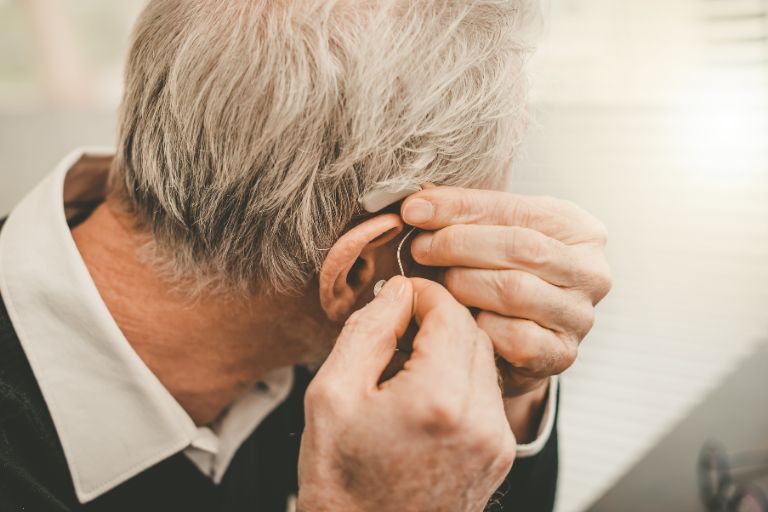When you first start wearing hearing aids, you might wonder how long it’ll take before they feel part of your everyday life. Typically, it can take a while to get used to hearing aids, and the timeframe can depend on several factors, like your type of hearing loss and the kind of hearing aids you’re using.
You’ll experience new sounds that might seem overwhelming initially, but you can ease this adjustment with the right strategies. Read our expert guide to learn how you can accelerate this adjustment process and what steps you can take to make your hearing aids work seamlessly for you.
Initial adjustment period
You’ll likely need 2-4 weeks to feel comfortable with your new hearing devices. When you’re wearing a hearing aid for the first time, it’s common to find sounds overly loud or somewhat unnatural. This is your brain getting used to processing sounds it hasn’t heard in a while. One of the side effects of the new hearing aid is dizziness. This usually occurs as your body adjusts to the new levels of auditory input. Don’t worry—it typically fades as you acclimate.
If you wear hearing aids with glasses, make sure both fit comfortably. Sometimes, behind-the-ear models clash with some glasses frames. Adjusting the placement of your glasses or opting for thinner, more flexible temples can help alleviate this issue.
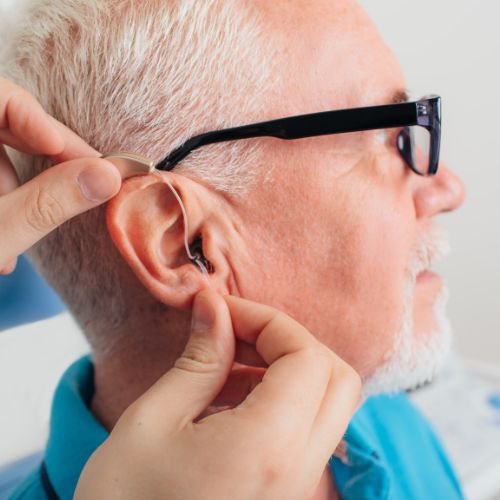
Learning to use your hearing aids
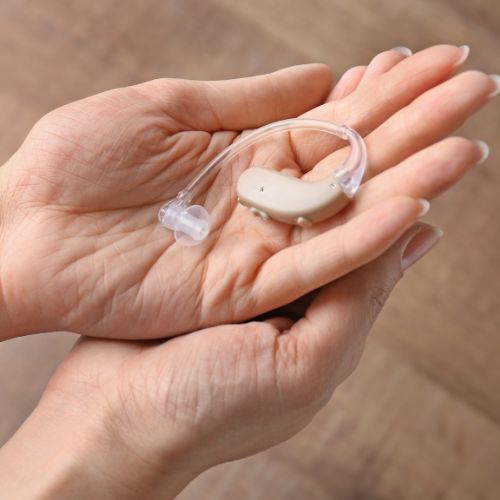
Once you’ve gotten your hearing aids, mastering how to insert, remove, and maintain them is essential. Adjusting to new hearing aids involves more than just wearing them; it’s about learning how to handle them day-to-day. Initially, the process can feel overwhelming. The design might seem intricate, and the fear of damaging them is real. However, with consistent practice, the routine becomes second nature.
Understanding how long it takes your brain to adjust to hearing aids is vital. It’s not just about the ears adjusting to new sounds; your brain is also learning to interpret them correctly. At first, everyday environments might sound different, and volumes can feel louder than usual. This sensation is common and part of the journey to better hearing.
Maintenance and care
Proper maintenance and care of your hearing aids are crucial for peak performance and longevity. Taking care of them isn’t just about guaranteeing they work well; it’s also about making your adjustment period smoother and more comfortable.
One of the most critical daily tasks you’ll need to adopt is cleaning your hearing aids. Earwax and other debris can quickly accumulate and affect the sound quality. Each day, take a few moments to wipe them down with a dry, soft cloth. Ensure you’re gentle and don’t use water or other liquids that could damage them.
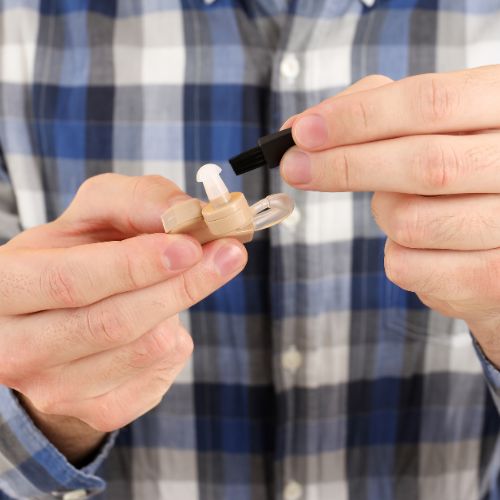
Tips for adjusting to your new hearing aids
Be patient
Adjusting to your new hearing aids requires patience. It might take several weeks and fittings to fine-tune them to your needs. You’re likely to feel overwhelmed at first as you suddenly hear noises you haven’t heard clearly in a long time.
This influx of sounds can be disconcerting, but it’s crucial to stick with it. Don’t be surprised if your initial experiences are a bit challenging. Remember, it’s normal to encounter some bumps along the way. Keep in mind that each adjustment brings you closer to clearer hearing.
Hang in there, keep attending your fitting appointments, and soon, you’ll start reaping the benefits of your persistence.
Be realistic
Embracing realism is vital when adapting to your new hearing aids. You’ll probably feel some frustration at first as your brain adjusts to processing sounds you haven’t heard clearly for a long time. Initially, everyday noises like the refrigerator’s hum or the clock’s ticking might overwhelm you. While seemingly intrusive, these sounds are part of the normal auditory world you’re re-entering.
Eventually, you’ll be able to ignore background noise and enjoy hearing everyday sounds and your loved ones again.
Keep practising
To effectively adapt to your new hearing aids, it’s important to practise consistently in various environments. Start by wearing them at home, focusing on one-on-one conversations until you feel more confident.
You can also read aloud to yourself, chat with a pet, or listen to podcasts, the radio, or audiobooks. These activities will help you get used to your new hearing capabilities and your own voice.
Once you’ve mastered using them at home, take a quiet walk outdoors to familiarise yourself with less-known sounds. Gradually, you can move to busier places with more background noise.
Slowly build-up use
Start by wearing your new hearing aids for a few hours each day, gradually increasing the duration as you become more accustomed to them. If you find the adjustment challenging, begin with one hearing aid and slowly add the second.
As mentioned in the above tip, start in the comfort of your home, where you can control your sound environment. Once you’re more comfortable, venture outside for short periods. This gradual approach helps your ears and brain adapt without becoming overwhelmed. Remember, taking breaks is okay if it feels too much.
Gradually extend the time and variety of environments, like moving from quiet settings to noisier ones, to build your confidence and comfort with the new sounds.
Continue to attend hearing appointments
As you increase your use of hearing aids, remember to keep attending your scheduled appointments with your hearing aid specialist. These sessions are essential for fine-tuning your device and addressing any concerns. Your hearing care specialist will assist you in adjusting the volume and sound quality and cover essentials like turning your aids on and off, changing batteries, and maintaining them.
Whether these meetings are over the phone or face-to-face, they’re an ideal chance to discuss your progress and any difficulties you encounter. If you’re experiencing problems, be honest with your audiologist. They’re there to help, offering support and guidance to ensure you’re comfortable and confident with your hearing health.
Book a hearing aid appointment at South East Hearing Care Centres
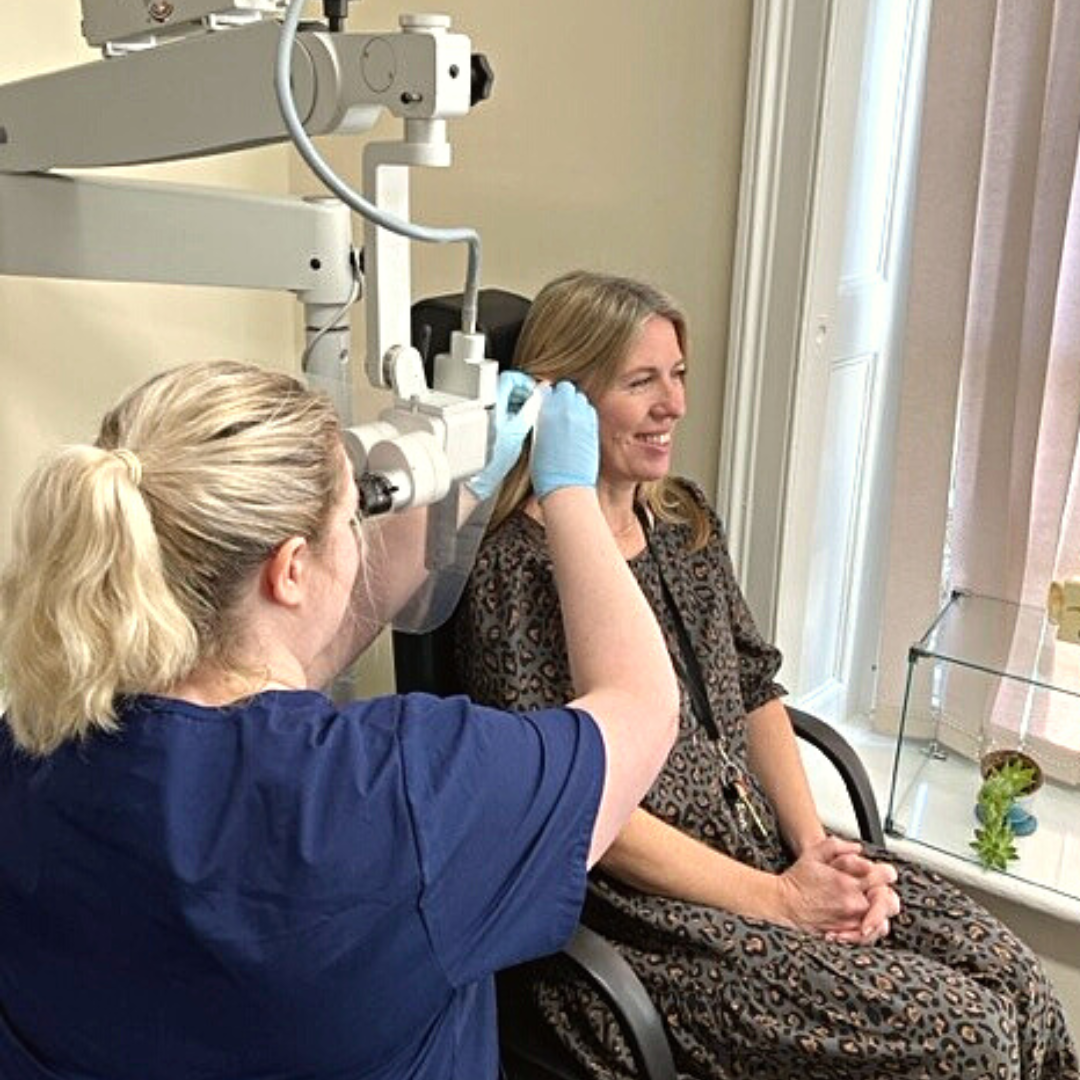
To book your hearing aid appointment at South East Hearing Care Centres, contact one of our Horsham, Seaford, or Chichester clinics. We’ll schedule a diagnostic hearing test to assess your hearing needs accurately. Our HCPC registered audiologists, with 25 years of experience, are committed to providing you with the best care. They’ll answer all your questions and address any concerns, ensuring you’re comfortable throughout the process.
We pride ourselves on our personalised service. We acknowledge that each person’s hearing loss is unique, and we offer a wide range of hearing aids to suit different levels of hearing impairment, from mild to profound. Don’t hesitate to take the first step towards better hearing – contact us today.
Frequently asked questions
Can hearing aids cause headaches or discomfort?
When you first start wearing hearing aids, you might experience headaches or discomfort. This is usually due to an incorrect fit or the initial adjustment period. Have them checked and adjusted if necessary.
Will hearing aids restore my hearing to normal?
Hearing aids won’t restore your hearing to normal, but they’ll significantly enhance your hearing ability. You’ll notice a difference in understanding speech and catching sounds you’ve missed.
How do hearing aids affect listening to music?
Hearing aids can enhance music enjoyment by amplifying sounds, but they might not perfectly replicate natural hearing. You’ll likely notice better clarity but could experience sound distortion or volume balance issues. Bluetooth hearing aids will help, as you can enjoy music streamed directly through your hearing aids.
Can I swim or shower with my hearing aids?
You shouldn’t swim or shower with your hearing aids unless they’re specifically marketed as waterproof. Water can damage them, so removing them before entering any water is best.
